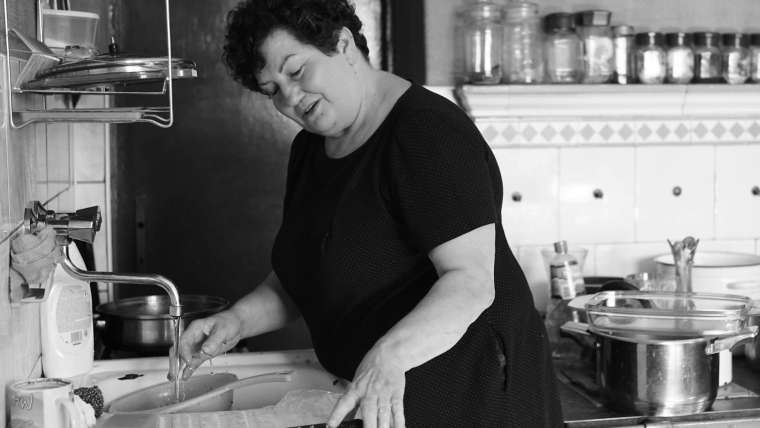Discover the ancient secrets to surviving the modern-day stone age with these essential tips for dealing with kidney stones.
Table of Contents
Welcome to our comprehensive guide on kidney stones, a common and incredibly painful condition that affects millions of people each year. Kidney stones are small, hard deposits that form in the kidneys and can cause excruciating pain when they pass through the urinary tract. In this article, we will provide you with valuable information on kidney stones, including causes, symptoms, treatment options, and prevention tips.
Kidney Stone Causes
Kidney stones can develop when certain substances in the urine – such as calcium, oxalate, and uric acid – become concentrated and form crystals. These crystals can then combine to form a solid mass, which can range in size from a tiny grain to a large stone. There are several factors that can contribute to the development of kidney stones, including:
- Diet: Consuming foods high in oxalate, sodium, or animal protein can increase your risk of developing kidney stones.
- Dehydration: Not drinking enough water can lead to concentrated urine, making it easier for kidney stones to form.
- Family History: If someone in your family has had kidney stones, you may be more likely to develop them as well.
Kidney Stone Symptoms
The most common symptom of kidney stones is intense pain in the back, side, or lower abdomen. This pain can come in waves and may vary in intensity. Other symptoms of kidney stones include:
- Sharp pain during urination
- Blood in the urine
- Nausea and vomiting
- Frequent urination
- Urinary urgency
Kidney Stone Treatment
If you suspect you have kidney stones, it is essential to seek medical attention promptly. Depending on the size and location of the stones, treatment options may vary. Common treatments for kidney stones include:
- Fluid Intake: Drinking plenty of water can help to flush out small kidney stones.
- Pain Medication: Over-the-counter pain relievers can help manage the discomfort caused by kidney stones.
- Medical Procedures: In some cases, doctors may recommend procedures such as lithotripsy or surgery to remove larger stones.
Kidney Stone Prevention
Preventing kidney stones involves making lifestyle changes that can help reduce your risk of developing them in the future. Here are some tips for preventing kidney stones:
| Tips for Dealing with Kidney Stones | |
|---|---|
| Tip | Description |
| Stay Hydrated | Drinking plenty of water helps prevent the formation of kidney stones. |
| Follow a Healthy Diet | Avoid foods high in oxalates and sodium, which can contribute to kidney stone formation. |
| Exercise Regularly | Regular physical activity can help prevent kidney stones by promoting overall health. |
| Limit Caffeine and Alcohol | Caffeine and alcohol can dehydrate the body, increasing the risk of kidney stone formation. |
| Seek Medical Attention | If you experience severe pain or symptoms of a kidney stone, consult a healthcare professional. |
- Stay Hydrated: Drinking plenty of water throughout the day can help prevent the concentration of minerals in the urine.
- Follow a Balanced Diet: Eating a diet that is low in salt, animal protein, and oxalate-rich foods can reduce your risk of kidney stones.
- Manage Underlying Conditions: If you have certain medical conditions, such as high blood pressure or obesity, managing them effectively can help prevent kidney stones.
Conclusion
Dealing with kidney stones can be a painful and frustrating experience, but with the right knowledge and guidance, you can navigate through it successfully. By understanding the causes, symptoms, treatment options, and prevention tips for kidney stones, you can take control of your health and minimize your risk of developing this condition. Remember, if you suspect you have kidney stones, don’t hesitate to consult with a healthcare professional for proper diagnosis and treatment.
FAQs
Question 1: Are kidney stones always painful?
Answer 1: Kidney stones can cause intense pain when they pass through the urinary tract, but some small stones may not cause any symptoms at all.
Question 2: Can kidney stones be prevented?
Answer 2: Yes, kidney stones can be prevented by staying hydrated, following a balanced diet, and managing underlying medical conditions.
Question 3: How are kidney stones diagnosed?
Answer 3: Kidney stones are typically diagnosed through imaging tests, such as CT scans or ultrasounds, to visualize the stones in the kidneys or urinary tract.
Question 4: Is surgery always necessary to remove kidney stones?
Answer 4: Surgery is not always necessary to remove kidney stones. Depending on the size and location of the stones, other treatment options, such as lithotripsy, may be used to break up the stones for easier passage.





